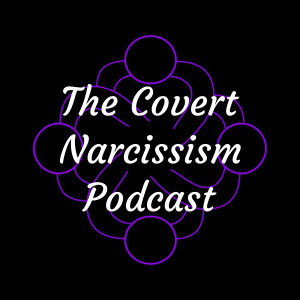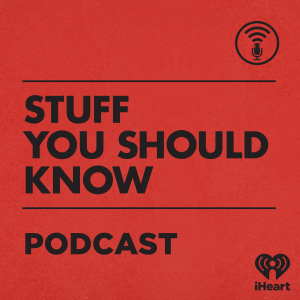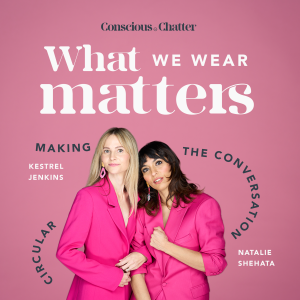
In episode 279, Kestrel welcomes Jono Salfield, the cofounder of Afends, to the show. A sustainability-focused brand based in Byron Bay, Australia, Afends recently started their own Hemp R&D facility – Sleepy Hollow Farm — delving into farming to grow their own hemp for future collections.
“Sustainability is just an evolution and being more innovative and looking at alternatives and trying things, to basically improve the way that we impact. Because we’re always gonna impact. And if you say that you’re not impacting, then you’re lying, really.” -Jono
We’ve definitely explored HEMP on past shows. We’ve explored the challenges in cultivating the fiber commercially, due to legislation that prevented that for the last century or so. We’ve talked about the many uses of the plant – from feeding to housing to healing to clothing you.
And this week, we’re talking about how to actually GROW THE PLANT for fiber production.
Our guest, Jono, is the cofounder of an Australia-based brand, Afends, and now, you could also say, a hemp farmer. Two things I very rarely encounter TOGETHER across my work in this space.
In 2021, he and his cofounder purchased nearby farmland to build a hemp R&D facility – Sleepy Hollow Farm. And recently, they harvested their first fiber, impressively growing enough to replace the hemp used in their current line. Throughout our chat, we get into the why, the how, the challenges and the wins they’ve experienced in their first foray into hemp farming.
But for real – how do you go from running a brand to buying farmland, getting your hands in the dirt and figuring out how to actually grow fiber!? As Jono tells us, “we kind of jump into the deep end a lot.”
I’d say so.
He shares more on why hemp is so freaking amazing (from both a farming and carbon-capture lens), the general process involved with retting and decordication, the challenges that still exist to turn the plant fiber into actual fabric, and more.
Quotes & links from the conversation:
-
“What we aim to do is show Australia, or even the rest of the world, that hemp is a fiber which can 1) be easily grown, 2) be potentially that next big fiber that can help decrease a bunch of the impacts that growing conventional cotton has.” -Jono (17:26)
-
“For us, looking at the farming from seed to skin was something really important to us, because yeah, you can go online and you can research everything until you’ve seen what everyone’s written. But I think there’s something really important about seeing things firsthand and discovering what it entails to do it yourself.” -Jono (17:55)
-
“The type of plant that we need to grow for textiles is fast-growing sativa plant, which we needed to get to maximum height and it needs to be super dense. The denser, the more plants in a small area, the better, because you’ll be able to grow more fiber, basically. Sourcing that seed was the first major challenge.” -Jono (20:18)
-
Retting Process = hemp gets cut down and left in the field to basically let the microbes start to help separate the fiber from the hurd
-
Decordication = separating the hurd from the fiber // the long stalk has fiber on the outside and hurd on the inside
-
“We’re not able to make that fiber into actual textiles in Australia, there’s just no facilities set up. So, we have to send it to China, to where we actually construct and make the textile material. And look, ideally, on a perfect sustainable level, everything’s just done within a few kilometers of where you’ve grown it, so the impact’s as small as possible. But, we’re not there yet.” -Jono (24:55)
-
“The other major positive behind it is that nothing goes to waste — especially when you’re growing fiber — because you’ve got this super dense field of really tall, stick-like plants, basically. There’s a little bit of leaf on top, but it’s not a thick cannibis plant with heaps of leaves and buds and stuff. But everything gets used. The hurd gets used for building, and then you’ve got the textiles from the fiber. So, the whole plant gets used. It’s quite incredible in that degree.” -Jono (29:03)
-
Watch *Weed Need Change* Hemp Docu-Series >
-
Afends Website >
-
Follow Afends on Instagram >
More Episodes
Motherhood, entrepreneurship & sustainability: navigating impossible expectations while caring for yourself and others, and building things that center care
 2024-10-29
2024-10-29
Kestrel on vulnerability, personal health, podcast evolutions & a question to sustainable fashion folks: are you OK?
 2024-10-15
2024-10-15
Nelson ZêPequéno of Black Men With Gardens and Cayetano Talavera of Hecho By Caye on why fashion needs to listen to nature’s lessons on slowing down, tuning in, practicing patience & cultivating creativity to better center sustainability
 2024-07-02
2024-07-02
Teju Adisa-Farrar of Black Fiber & Textile Network and Author Layla K. Feghali on geography and what our relationship to place can teach us about *sustainability*
 2024-06-11
2024-06-11
Wafa Ghnaim of Tatreez and Tea & Dr. Tanveer Ahmed of Central Saint Martins on preserving culture, decolonial frameworks, and how intersectional reform can be a pathway toward sustainable fashion futures
 2024-04-23
2024-04-23
Sustainable fashion podcasters unite — Emily Stochl of Pre-Loved Podcast & Stella Hertantyo of Conscious Style Podcast help us reflect on 11 years since Rana Plaza, celebrating collective movements & ways to focus our continued advocacy
 2024-04-09
2024-04-09
Upcycling artists Francisco Alcazar & Ella Wiznia of Series NY are redefining sustainable fashion while reimagining craft & challenging the gender binary
 2024-03-26
2024-03-26
How gender plays into the devaluing of knowledge and its links to sustainable fashion & wellness with Megan Schnitker of Lakota Made and Niha Elety of Tega Collective
 2024-03-12
2024-03-12
Celebrating the cultural tradition, past and present, of Palestinian Tatreez with artists / educators Lina Barkawi and Eman Toom & why sustainable fashion must include cultural sustainability
 2024-02-27
2024-02-27
Intergenerational knowledge & sustainable fashion — how clothing is more than just aesthetics; it’s about the upholding of cultural practices and the amplifying of knowledge & traditions
 2024-02-13
2024-02-13
Vintage stylist Beth Jones & Dounia Wone of Vestiaire Collective on whether fast fashion brands fit into the resale experience
 2024-01-30
2024-01-30
Why self work is integral to advocating for transformation in fashion & why we must deeply question our personal values to truly get active in creating a more sustainable fashion future
 2024-01-16
2024-01-16
Denali Jöel on fashion as an art praxis rooted in Afro-Indigenous philosophies, interrogating the emphasis placed on the *industry* & reminding us of the possibility of creating new ecosystems
 2023-11-07
2023-11-07
Julius Tillery aka the "Puff Daddy Of Cotton" on the need to remix both the perception of the cotton industry and the business model
 2023-10-30
2023-10-30
Cassandra Pintro of Consumption Project on welcoming her community to challenge their buying habits and question what is *enough*
 2023-10-24
2023-10-24
Jeanell English on navigating the pressure to project a certain image in business & across climate spaces and balancing the worlds of activists & execs as a leader in impact
 2023-10-17
2023-10-17
Muchaneta Ten Napel on utilizing tech as a tool to change how fashion does business, not a crutch that will *save us all* & preparing for the fashion policy changes that are on the horizon
 2023-10-10
2023-10-10
*Breaking It Down* with Rachel Arthur, lead author of The Sustainable Fashion Communication Playbook, an actionable guide co-published by UNEP and UN Climate Change
 2023-09-26
2023-09-26
Tameka Peoples of Seed2Shirt on rebuilding equitable + just cotton systems & fostering the reclamation of cotton acreage for Black farmers
 2023-09-19
2023-09-19
Lisa Diegel, Global Sustainability Director, on Faherty's Native Initiatives, what mutually beneficial relationships can look like in practice, and the nuanced ways brands must take responsibility for the products they put out into the world
 2023-09-12
2023-09-12
Create your
podcast in
minutes
- Full-featured podcast site
- Unlimited storage and bandwidth
- Comprehensive podcast stats
- Distribute to Apple Podcasts, Spotify, and more
- Make money with your podcast
It is Free
You may also like

Exploring the National Parks


The Covert Narcissism Podcast


Greece Travel Secrets Podcast


Stuff You Should Know


Timcast IRL


- Privacy Policy
- Cookie Policy
- Terms of Use
- Consent Preferences
- Copyright © 2015-2024 Podbean.com



 iOS
iOS Android
Android